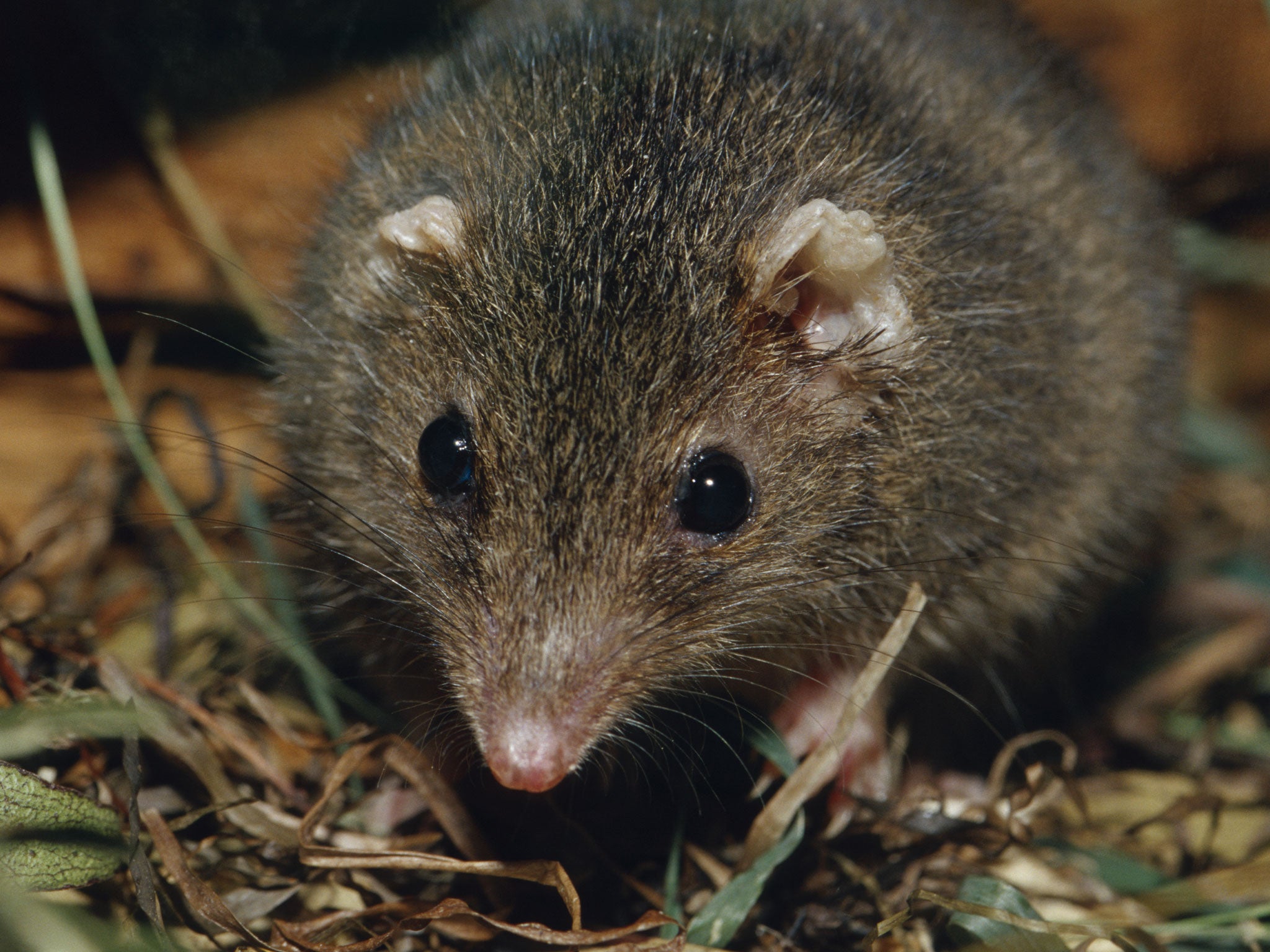New type of marsupial which mates frantically then dies has been discovered
Scientists have found a black-tailed variety of the mouse-like antechinus, which mates for up to 14 hours at a time

Your support helps us to tell the story
From reproductive rights to climate change to Big Tech, The Independent is on the ground when the story is developing. Whether it's investigating the financials of Elon Musk's pro-Trump PAC or producing our latest documentary, 'The A Word', which shines a light on the American women fighting for reproductive rights, we know how important it is to parse out the facts from the messaging.
At such a critical moment in US history, we need reporters on the ground. Your donation allows us to keep sending journalists to speak to both sides of the story.
The Independent is trusted by Americans across the entire political spectrum. And unlike many other quality news outlets, we choose not to lock Americans out of our reporting and analysis with paywalls. We believe quality journalism should be available to everyone, paid for by those who can afford it.
Your support makes all the difference.A new variety of a species of “very hairy” marsupial that dies after “frenzied mating” has been discovered.
Scientists in Australia have found a new black-tailed sub-species of antechinus, which is known to die from the stress of strenuous mating, with sessions lasting up to 14 hours.
The new creature has been described in the article published in the ‘Zootaxa’ journal as “striking”, with a “very shaggy, very hairy” body and long guard hairs.
The discovery follows Australian research published last year that contradicted the previous view that the male antechinus dies to leave more food for its offspring.
Instead, scientists believe males die after mating because it causes them extreme stress, making them prone to infections caused by internal bleeding and the disintegration of their body tissue.
Dr Andrew Baker, from the Queensland University of Technology, described the new antechinus to ABC news.
“On the rump of the animal it becomes almost an orangey-brown colour, but where the tail emerges from the rump there is quite a distinct change from orange rump to black tail,” said Dr Baker.
He added that the marsupials typically have a “frenzied mating period” when they are 11 months old and “all males will die before the young are born”.
“[The new species] probably follow the typical pattern of antechinus, which is all males are dead before they turn one year old,” he told ABC News.
“Each mating can take 12 to 14 hours and they do this over and over again,” said biologist Dr Diana Fisher from the University of Queensland.
“Even if they survived the breeding period, they would be infertile anyway... It's a bit distressing to see them die.”
Join our commenting forum
Join thought-provoking conversations, follow other Independent readers and see their replies
Comments